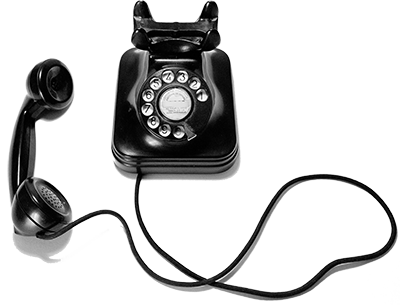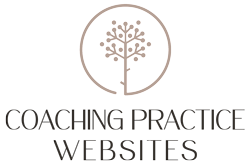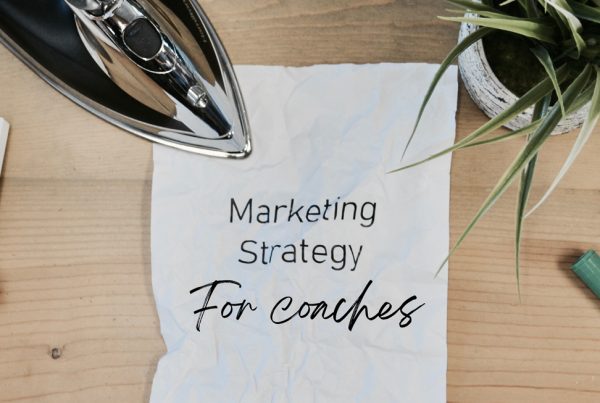Win that client
Many coaches struggle with selling their services. Learn how to confidently ask for the business at the end of your coaching discovey call.
The purpose of a discovery call is the give a potential client a safe space to share their story and biggest concerns. It’s usually a short meeting by phone or video chat lasting less than an hour. It gives both the coach and the client an opportunity to determine if they are a good fit for each other and for the coach to educate them about the coaching process. Coaches are often nervous about their first few discovery calls because they are overly concerned with “landing the client.” Instead, the coach should be concerned with deeply listening and asking themselves if they can truly help the client.

Before the call
Admittedly, when I was coaching, my first couple of coaching discovery calls didn’t go well. I was really nervous, not confident in my abilities, and felt like I was going in blind. Because I didn’t ask the right questions on my scheduling form, I had no idea if these clients would be a good fit. No matter what your coaching niche, here are some general questions to consider asking:
- What do you hope to accomplish with coaching?
- If this is a successful process, what will you have learned about yourself?
- What are the most urgent issues you want to address in coaching?

A clear mind
It’s also important to be in the right headspace before the call. Engaging in a ritual like deep breathing, mind-clearing, and using other mindfulness practices helps you put other distractions out of your mind for the time being. Try to ignore any negative self-talk that tries to convince you that you won’t show up well for the client. When you start the call you want to feel open and curious and fully focused on them.
The call
Let the potential client choose whether to use Zoom or the phone for the coaching discovery call (and any call after that). Allowing this choice signals to them that they are in charge of the process. If the call is over the phone, have the client call you. It shows serious intent on the client’s part to engage in the coaching process. Here is a brief outline of the call:
- Thank the client for reaching out, acknowledge their courage, and let them know that in the 30 minutes we have together I’d love to hear about what brought them to coaching and their most pressing concerns. Then explain how you might address their concerns through coaching, how your coaching process works, and then they can decide if they believe your services will be a good fit. Explaining the expectations for the call upfront immediately puts the client at ease.
- Allow the client to tell you their story. At no time during this period should you engage in any actual coaching. Ask questions and acknowledge what you’ve heard the client express and how they are feeling. If the client hasn’t already expressed the most pressing concerns they want to address in coaching, then ask.
- Identify how you might address each pressing issue in coaching (or how you cannot if there are issues that are out of the scope of what you can help with). Then explain the details of coaching – when, where, payment, and what package you think might be a good fit.
- Then comes the hardest part for most – the ask. Try something like this, “now that you’ve heard how coaching might benefit you, are you interested in moving forward?” If they are, explain the next steps.
Handling objections
If a client says they want to think about it, or if they hesitate, encourage them to think about it overnight. Let them know you’ll be contacting them in a day or two to follow up. You never want a client to feel pressured to work with you if you’re not the right fit. Likewise, refer potential clients to other coaches or therapists if you believe they will be better served elsewhere.
Sometimes a client will tell you why they can’t say “yes” on the spot. These objections usually fall into several camps:
- Cost – they assumed that you could bill their insurance or they hoped that one session would solve their issues (the minimum number of sessions I suggest is three). You will rarely get a cost objection if you are transparent about your costs and packages on your website. If you do not publish your prices on your website, you will be much more likely to get the cost objection.
- Other coaches – they are interviewing several coaches and want to talk to all before making a decision. Respect it when you hear this objection. Ask them what they are looking for in a coach as a follow-up question to help them get to know you better.
- Timing – sometimes a client may really like what you have to offer but doesn’t feel ready to participate yet in the coaching process. Encourage them to reach out again if the time feels right.
After the call
Allow yourself a bit of downtime after the call. Don’t beat yourself up if it didn’t go perfectly or if the client didn’t express interest to sign up right away. Later when you’ve had some time to process, ask yourself what went well, and what did not. Being able to improve your process is helpful, especially if you find over time that most of the clients you talk to during the call don’t sign up. Being able to process with a mentor or a more seasoned coach can also be very helpful. Most of all, don’t give up. Not winning a client can feel like a rejection and nobody likes that. It’s normal to get several “no’s” before you get a “yes.”
Don’t forget to follow up with the client and provide paperwork and your schedule to move forward or to ask them again if they are interested.




